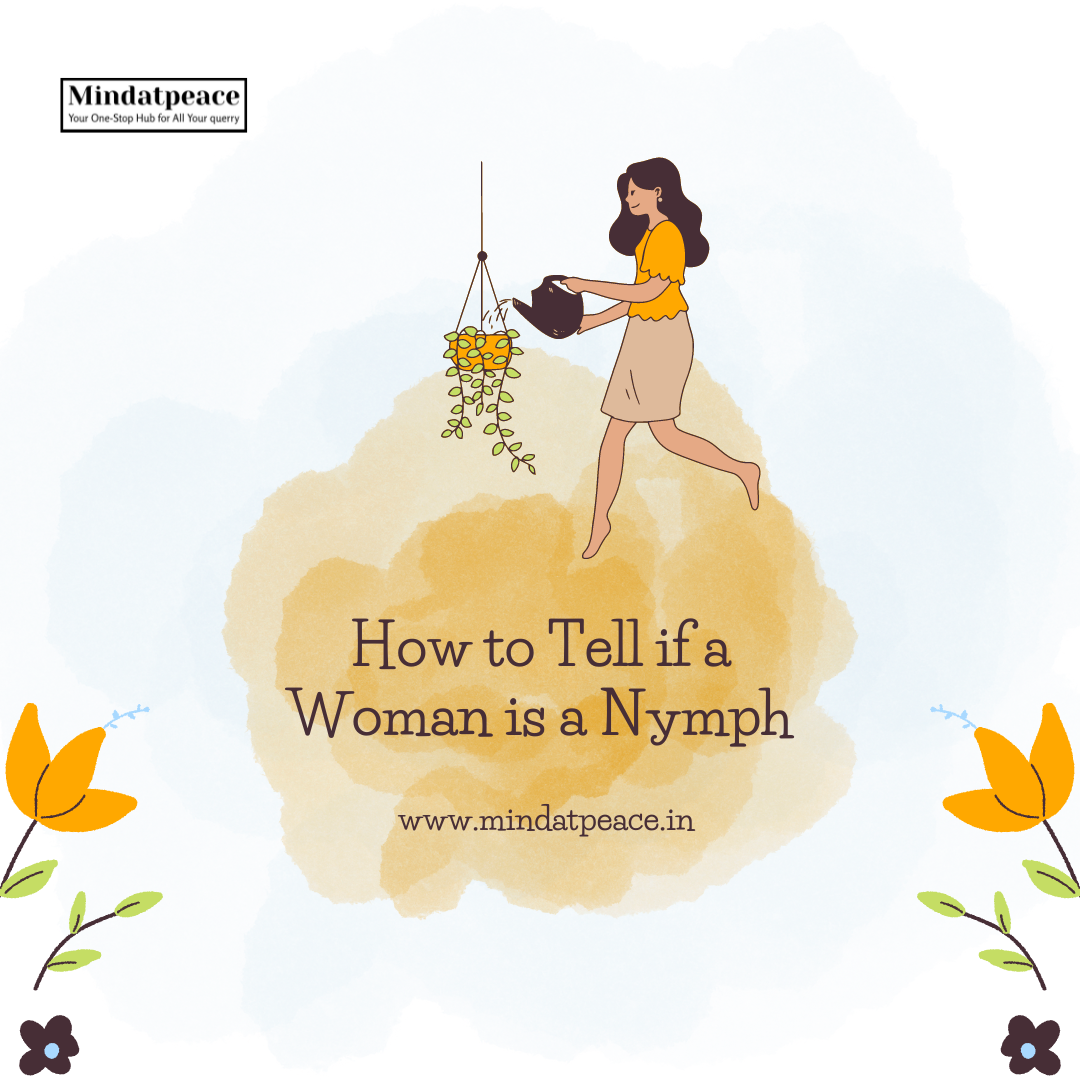Nymphomania, a term often used colloquially to describe hypersexuality in women, can be a complex and sensitive topic. It refers to an excessive or insatiable sexual desire in women. How to Tell if a Woman is a Nymph However, it’s important to approach this subject with empathy and understanding, as individuals experiencing such feelings may require support and assistance rather than judgment.
Introduction to Nymphs
Nymphs have been a subject of fascination and mythology throughout history. In ancient Greek mythology, nymphs were depicted as beautiful female spirits of nature, often associated with specific natural elements such as water, forests, or mountains. However, in contemporary terms, the term “nymph” has evolved to describe a woman with an overwhelming desire for sexual activity.
Understanding the Concept of Nymphomania
Nymphomania, or hypersexuality, is characterized by an intense and persistent craving for sexual activity. While a healthy sexual appetite is normal and natural, nymphomania involves behaviors that can become disruptive to daily life and relationships.
Signs of Nymphomania
Hypersexuality
Women who are entangled in nymphomania frequently discover that they are drawn to frequent, spontaneous sex, sometimes to the detriment of other important aspects of their lives. They may have to deal with the consequences of their unbridled cravings, which can ruin their relationships, professions, and general well-being.
Compulsive Sexual Behavior
When someone is experiencing nymphomania, they could unintentionally engage in sexual activities even if it could be harmful. Their unwavering quest for fulfillment frequently causes individuals to ignore the serious dangers to their health and the durability of their relationships, choosing to put short-term satisfaction ahead of the consequences.
Excessive Sexual Thoughts or Fantasies
One common indicator of nymphomania is a persistent obsession with sexual ideas or fantasies, which indicates a serious internal battle and an urgent need for assistance and understanding.
Psychological Aspects of Nymphomania
Emotional instability is defined by significant and frequent fluctuations in a person’s emotional state. The outcomes include rapid mood swings, heightened emotional reactivity, and emotional dysregulation. Maintaining relationships and fulfilling duties might be challenging for certain people. It is often associated with borderline personality disorder and bipolar disorder. The course of therapy includes counseling, medication, and self-care practices including mindfulness and physical activity to support overall wellness and emotional regulation.
Low Self-Esteem
Low self-esteem is a negative perception of oneself, marked by feelings of inadequacy and self-doubt. It often stems from comparisons with others, past experiences, and societal pressures. Low self-esteem can lead to avoidance of opportunities and negative emotions like anxiety and depression. Overcoming low self-esteem involves therapy, self-awareness, and self-care practices to build confidence and self-worth.
Impulse Control Issues
Impulse control issues refer to difficulties in managing impulses, leading to impulsive behaviors with negative consequences. This can include reckless driving, compulsive shopping, or binge eating. Factors like genetics and mental health conditions contribute to these issues. Treatment involves therapy, medication, and lifestyle changes to develop healthier coping strategies and improve decision-making skills.
Social and Behavioral Cues
Multiple Sexual Partners
Multiple sexual partners refer to individuals engaging in sexual activities with more than one partner. This behavior carries physical risks like STIs and emotional challenges such as jealousy and insecurity. Open communication, consent, and safe sex practices are crucial for navigating these relationships responsibly.
Difficulty Maintaining Long-term Relationships
Difficulty maintaining long-term relationships refers to challenges in sustaining romantic partnerships over time. This may stem from communication issues, trust issues, or incompatible values. It can lead to feelings of loneliness and dissatisfaction. Addressing these challenges requires effective communication, mutual respect, and compromise from both partners.
Impact on Daily Life
The impact on daily life refers to how certain factors affect a person’s day-to-day activities and well-being. This includes physical health, mental health, relationships, work, and social interactions. It’s crucial to recognize and address any negative impacts promptly to maintain overall well-being and quality of life.
Seeking Professional Help
Seeking professional help involves reaching out to trained professionals such as therapists, counselors, or medical practitioners to address physical, emotional, or mental health concerns. It’s an important step towards understanding and managing challenges effectively. Professional help offers support, guidance, and therapeutic interventions tailored to individual needs. It can facilitate healing, promote personal growth, and improve overall well-being. Don’t hesitate to seek professional help when facing difficulties or experiencing distress.
Conclusion
In conclusion, identifying whether a woman is a nymph requires careful consideration of her behavior, emotions, and social interactions. While certain signs may indicate hypersexuality, it’s essential to approach the topic with empathy and understanding, recognizing that individuals struggling with nymphomania may require professional assistance and support. For more information and support, visit Mindatpeace.
FAQs
Q. Can nymphomania only affect women?
A. Although nymphomania has historically been mostly linked to women, it may afflict people of either gender.
Q. Is nymphomania the same as having a high sex drive?
A. While nymphomania involves an intense desire for sexual activity, it differs from simply having a high sex drive in that it can lead to compulsive and disruptive behaviors.
Q. Can nymphomania be treated?
A. Yes, nymphomania can be treated with therapy, medication, and support groups aimed at addressing underlying psychological issues and promoting healthier coping mechanisms.
Q. Is nymphomania considered a mental illness?
A. Nymphomania is not recognized as a standalone mental illness in modern psychiatric classifications. However, it may be symptomatic of underlying mental health conditions such as bipolar disorder or borderline personality disorder.
Q. How can I support a loved one struggling with nymphomania?
A. Encourage them to seek professional help, offer non-judgmental support, and educate yourself about the condition to better understand their experiences and needs.


